August 26, 2017
On August 12, the Coalition Against Hate Crime, with the assistance of the Department of Justice – Community Relations Service, held a free forum, entitled How We Respond to Hate. The forum, hosted at the Oregon Jewish Museum and Center for Holocaust Education, had a capacity audience. The original motive for the forum was to help the city heal and respond to the May 26 Max train attack, but the events occurring in Charlottesville, Virginia that weekend were on everyone’s mind. Much networking was done and there was good coverage from the local media:
Portland leaders discuss hate crimes
The forum was made possible thanks to a generous grant from Emily’s Fund and with help from the Genocide Studies Project at Portland State. Emily’s Fund also made available “HATE NOT IN OUR TOWN” yard signs that participants took home. The day was built on three important panels, with the participation of committed community leaders.
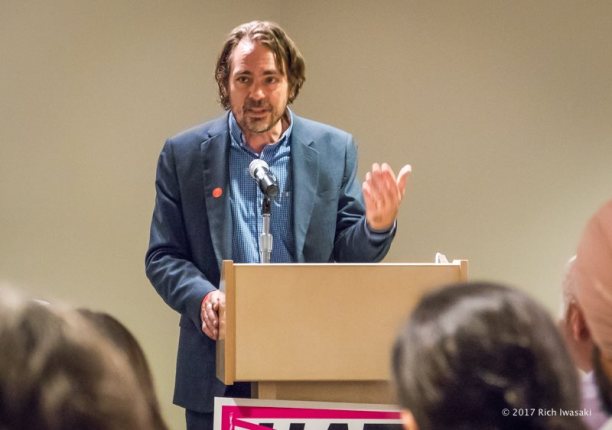
Welcome and Introduction 12:30 – 12:45 pm:
Randy Blazak, Coalition Against Hate Crime

Law and Law Enforcement Panel: 12:50 – 1:45 pm
Responses to hate from local and federal law enforcement agencies
Moderated by Knight Sor, DOJ/Community Relations Service
Caryn Ackerman, Special Agent, Federal Bureau of Investigation – Oregon
Hannah Horsley, U.S. Attorney’s Office
Jeff Sharp, Portland Police Bureau Bias Crime Detective
Sheriff Pat Garrett, Washington County
Jeffery Howes, Multnomah County District Attorney’s Office

Community Voices Panel 1:50- 2:45 pm
Perspectives from communities that have been the target of hate
Moderated by Harpreet Singh Mokha, DOJ/Community Relations Service
Gurpreet Kaur Singh, representing the Sikh community
Seemab Hussaini and Zakir Khan of CAIR-OR, representing the Muslim community
Steve Wasserstrom, Reed College, representing the Jewish community
Reid Vanderburgh, PFLAG, representing the LGBTQ community
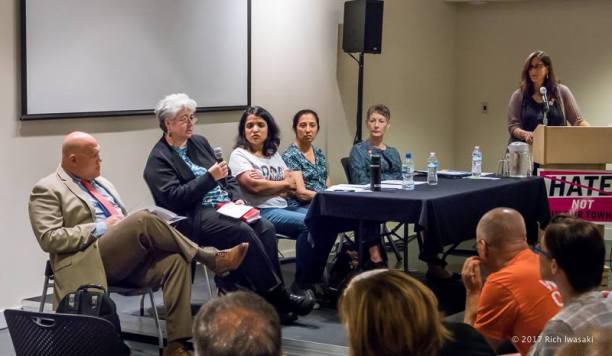
Resource Panel 2:50 – 3:45 pm
Preventing and responding to hate
Moderated by Amanda Byron from Portland State’s Conflict Resolution Department
Hillary Bernstein, Anti-Defamation League
Rachel Cunliffe Portland State Conflict Resolution
Shweta Moorthy, Portland United Against Hate
Chase Jones, Department of Homeland Security
Harleen Kaur, Sikh Coalition
Wrap Up and Networking 3:45 – 4:00 pm
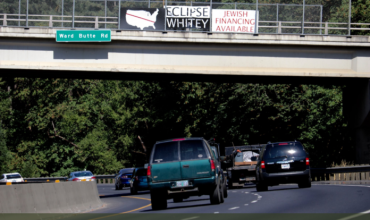
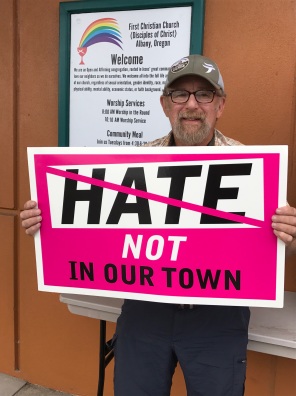
Hate continues to be a problem in our state. On August 20th, as motorists from around the region drove north on Interstate 5 to view the solar eclipse, many were greeted by banners hung by neo-Nazis from bridges in the Eugene-Albany area. Our rapid response team (i. e., Jeff Gottfried) delivered nearly 200 yard signs to churches, temples, and synagogues in the area, letting neighbors know that hate has no place in Lane County.
As we try to make sense of the events in Charlottesville (Read Randy Blazak response to the situation here: Charlottesville: America’s fork in the road), and our president’s mixed messages about racism, we redouble our efforts around this issue. We are working on a plan to better distribute the “HATE NOT IN OUR TOWN” signs to communities across the state. We are also partnering with the Portland Urban League to build towards a 2018 event to mark the 30th anniversary of the murder of Mulugeta Seraw by racist skinheads in Southeast Portland. We encourage you to be a part of our efforts.
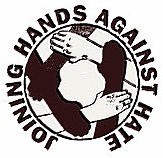

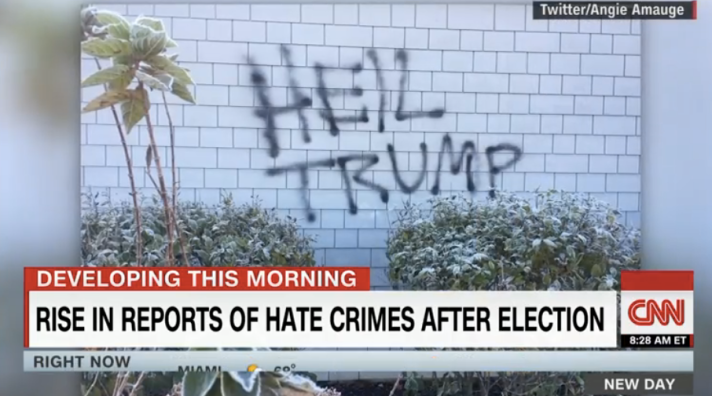
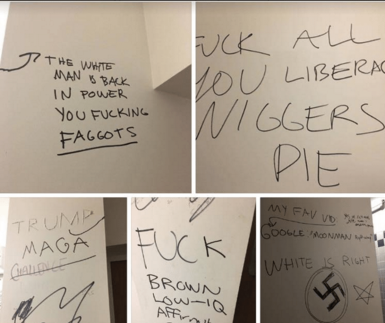
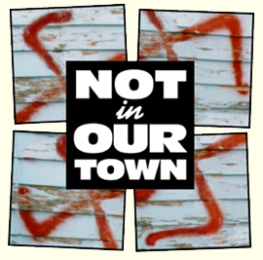
Recent Comments